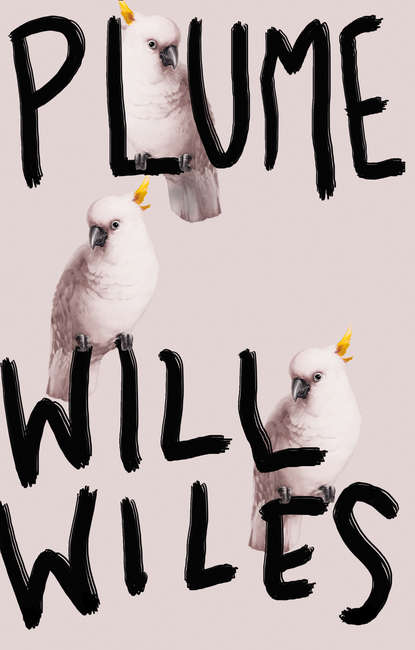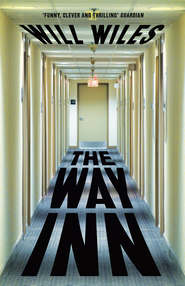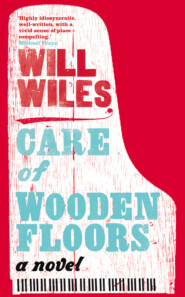По всем вопросам обращайтесь на: info@litportal.ru
(©) 2003-2024.
✖
Plume
Автор
Год написания книги
2019
Настройки чтения
Размер шрифта
Высота строк
Поля
The flatplan was the map of the magazine – a blank A3 grid of paired boxes indicating double-page spreads, used to plot out the sequence of stories, features and adverts, letting editors decide the distribution and balance of contents: too word-heavy or too picture-heavy? Are there deserts to be populated or slums to be aerated? Editors, not generally a whimsical breed, often attribute mystical properties to the ‘art’ of flatplanning. They talk – their eyes drifting to the middle distance – of matching ‘light’ and ‘dark’, of rhythm and counterpoint, and the magazine’s ‘centre of gravity’, its terrain, its movement. But basically, the flatplan is a simple graphical tool and can be mercilessly blunt in what it shows.
Those Xed-out spreads that came between features were advertising. And each of those ads would be for a high-status brand – BMW, Breitling, Paul Smith – appropriate to the magazine’s luxury-lifestyle brief. One spread, very occasionally two, between each feature. No one commented on that, as if it had always been that way. But when I had started at the magazine there had been three or four ad spreads between features. Sometimes ad spreads would interrupt features. Advertisers would insert their own magazines and sponsored supplements into ours. The ads would experiment and try freakish new forms. They would have sachets of moisturiser glued to them, or fold-out strips reeking of perfume, or the page would be an authentic sample of textured designer wallpaper or a hologram or it would come with 3D specs. It had been quite normal for the magazine’s writers and editors to complain about the ads, about features getting swamped by them, about the magazine becoming cumbersome. We were afloat on a sea of gold, and whining it was too thick to paddle, that the shine of it hurt our eyes.
There were still grumbles about the adverts, but now they dwelled on quality, not quantity. Was this Australian lager, or that Korean automobile, really the kind of advertiser we wanted? Couldn’t the ad team do better? But Eddie was able to turn away these gripes with a sympathetic yet helpless shrug – a shrug that said, ‘I know, but what can you do?’ – and no one pushed past that.
Every year there were fewer of us to complain.
Ilse was unhappy with the inclusions, the loose advertising leaflets tucked into the magazine. One was a sealed envelope printed with a black and white photograph of a child’s face, dirty and miserable. Underneath the face was the message IF YOU THROW THIS AWAY, MIRA MAY DIE.
‘This kid, I don’t know – this kid is threatening me? They are holding a gun to this kid and threatening it? It’s a threat?’
‘It’s a charity appeal,’ Kay said. ‘They are just trying to create some urgency.’
‘It is ugly,’ Ilse said. ‘Not the photograph, a good photograph I suppose, lettering fine, but what they are saying with this is ugly, it is a threat. When I open my magazine, my beautiful magazine’ – she acted this out, closing last month’s edition on the envelope, then opening it again – ‘and, oh my goodness, this kid, I don’t even know. It is not the correct mood.’
Eddie pushed a hand into his thick black curls. Ilse had been with the magazine longer than anyone except him, and along with him was the only surviving remnant of the Errol era. Dutch, brittle, she had a temper that was the basis of several office legends: that she was unsackable, that she had once hit a sub-editor with a computer mouse, that her giant desk was not a reflection of her status as art director but rather an exclusion zone established to keep the peace. When I was new, before the office became the roomy, under-populated space it was now, I had to sit near Ilse for two days while the wall behind my desk was repainted. Two days of terrified silence. On the second day, I ate lunch at my desk and for some reason – a self-destructive, reckless impulse, a death wish – that lunch included a packet of Hula Hoops. As I crunched my way through the fourth or fifth Hula Hoop, I became aware of eyes focused through steel-framed glass, of pale skin taut over sharp cheekbones. She said nothing, just looked. The remainder of the pack I softened in my mouth before chewing. It took about an hour and twenty minutes to finish them all.
This was back at the beginning of my time, and it was commonly held that she had mellowed. Recent budget cuts she had borne with (public) silence, if not good grace. Nevertheless, art directors are dangerous as a breed. They spend too much time playing with scalpels. Here we are in the age of Adobe Indesign and Photoshop, and still they won’t be separated from those vicious little blades that come wrapped in wax paper like sticks of gum, and those surgical green rubber cutting boards. Why, if not for murder? Or at least recreational torture.
Before Eddie could answer, Freya spoke. ‘Last month it was the National Trust. That seems off, to me. I mean, stately homes?’ She threw up her hands and grimaced.
Eddie smiled. ‘Good high-quality product. Not starving kiddies.’
‘But it’s just so Boden. Where do we draw the line? Those fucking catalogues of William Morris shawls and ceramic owls and reproduction Victorian thimbles?’
‘If their money’s green,’ Eddie said with a teasing little shrug, clearly relieved to be arguing with Freya and not Ilse, who could thus be answered by proxy. ‘Look, these pay, and quite frankly beggars can’t be choosers. You want to sit in on one of my meetings with the ad team. You don’t want.’
One of Eddie’s tics – along with the suffering-in-silence hands-in-the-hair – was starting sentences with the word ‘look’. You could see why he liked it: there was that note of Blairish candour, of plain dealing. It insisted on your attention and assent. But it was also a tell. It cropped up when he felt a discussion was not going his way. When he felt, for whatever reason, that he was not being sufficiently convincing. This was a double-look.
‘Look, they’re not going to do anyone any harm, they’re not going to kill anyone. You might not like them, I don’t care for them, but we need them.’
A silence fell.
‘Is that everything?’
Polly, the deputy editor, whispered, ‘Friday …’
‘Aha, Friday, yes,’ he said as he caught her eye. ‘A reminder of what we agreed last week: I’m not here next week, so the next Monday meeting will be on Friday, and it’s an important one. Has everyone kept the morning free?’
There were nods and mumbles of agreement. The change in schedule had been mentioned at the last Monday meeting, and its importance had been emphasised. Since then, it had been much discussed, out of Eddie and Polly’s hearing, in quiet, nervous huddles. Eddie or no Eddie, the Monday meeting was sacred. When Eddie was away, Polly took his place, and the meeting went on. A Monday meeting on Friday was a patent absurdity, and an ill omen. But how to express the suspicions of the group?
After a tense silence, Kay spoke, and was direct. ‘Are there going to be redundancies?’ Seeing Eddie wince, she added, ‘I don’t like to ask, no one does, but we’re all thinking about it and, frankly, the atmosphere is beginning to get a little stifling.’
Stifling was about right. Could Kay see it too? The room was filling with smoke, slowly, silently. It was going to choke us all, me first, unless we got out. No one else appeared to notice it – was it not affecting them, or was it killing them invisibly, undetectably, like carbon monoxide? No, I reasoned, probably not them, they would be just fine. The smoke was for me alone, it would fill my lungs and drag me down, and I would end right here in front of everyone before Eddie rapped the table with his knuckles and said, ‘That’s it.’ How would they react if I expired in the middle of the Monday meeting? Would they be sad, would there be a tasteful black-border tribute in the next issue, using that photo they took last month for the new website? Or the other photo, the one from four years ago when I was entered for an award, the one with the puppy fat and the smile, not the gaunt, hollow-eyed creature I had become. I feared the new picture, crisp shadows in 8-bit greyscale.
Or would the expressions of grief be limited to: ‘Sadly Jack has let us down again, so we have ten pages to fill …’
My death might save Eddie a redundancy. Kay was right. She had asked the question we all feared to, the question we asked each other when Eddie wasn’t present, preferring to swap ignorant speculation for an actual answer.
‘Look,’ Eddie said, grabbing a fistful of his hair as he spoke, ‘I’m not going to sugar-coat it. It’s tough. Tougher than it’s ever been. But I promise you I will do everything it takes to avoid … having to do anything like that.’
He looked around the table, carefully making eye contact with each of us in turn. Freya, at his left hand, was reached last, and she did not raise her eyes from her pad, where an extensive pattern of angry spirals had appeared.
‘So for the time being the inserts stay,’ Eddie continued. ‘We’ll just have to live with them. Even those fucking pewter eggcups, if it comes to that, God help us.’
A couple of people managed to chuckle. Eddie rapped his knuckles against the table. ‘OK. Friday then. That’s all.’ And the meeting broke up, like a cloud dispersing.
In spite of my desperation, I did not immediately rise from my seat, fearful of wobbling in front of the others. Polly had been sitting at Eddie’s right hand, on my side of the table, and my view of her had been blocked during the meeting by Ilse and Mohit. As the others left the aquarium, she was revealed. And she was staring right at me, chair swivelled in my direction, no trace of a smile. Her clipboard, a stainless-steel thing that was in effect a corporate logo for Brand Polly, lay on her lap. At first I thought she was going to speak to me, so I turned my own chair her way and looked attentive, trying to straighten up and compose myself. But she said nothing, and just stared at me, as if I were an inanimate object that presented a problem; a knackered sofa that needed to be taken to the dump, for instance. She was still staring as she stood, and only looked away when she reached the door and left the meeting room.
My head swam. I had to get out.
It was a relief to be out of the aquarium, out of the meeting, but I was not free yet. The earliest, the absolute earliest, I could justifiably leave for lunch was after noon, and it had only turned eleven thirty. The Monday meetings used to start at nine thirty sharp and had been known to run until one or even two. Now they started at ten and rarely ran past twelve. Fewer pages to fill, smaller, simpler flatplans, less international travel to coordinate in the diary, fewer voices around the table. Today we hadn’t even started until ten fifteen – my fault, I had been late.
I wanted to talk to Eddie, to try to excuse myself from the office until Friday. That was the one advantage of being expected to do two interviews: I could justifiably work from home all this week and perhaps half of next week, in theory using the time to meet the subjects, type up the transcripts and then write the pieces. And other things.
But Eddie was talking with Polly in his ‘office’. This was not truly a separate room, more a stockade in the corner of our open-plan expanse, made more private by metal archive cabinets on one side and chest-high acoustic panels on the other. The publisher – who had a very nice office – had fixed ideas about editors working in the midst of their staff. And so it had been, back in the Errol days: he had a big desk opposite Ilse, right in the middle of the floor, surrounded by his team. By the time I started on the magazine, Eddie had migrated to the corner. The archive cabinets and acoustic panels had appeared during a reorganisation a couple of years ago, a reorganisation made possible by our declining numbers. We would tease Eddie about his fortress, and he would tease back, saying he needed a bit of space to himself, to give him a break from all of us. Then those deep, gentle brown eyes would turn serious, perhaps even a little sorrowful, and he would say that sometimes people, us, came to him with delicate matters, sensitive personal or professional issues, and he wanted us to feel secure in doing that, to have some privacy. Really it was for our benefit, not his. And didn’t we prefer having a bit of distance from our boss? Not having him looking over our shoulder the whole time?
He really was an amazingly thoughtful guy. But he was talking with Polly, and it looked tense. Polly was holding her steel clipboard in Clipboard Pose #4: Body Armour, clutching it to her chest in crossed arms. As Eddie spoke, she gave a series of little nods to punctuate what he was saying, a human metronome on a slow beat. She was behind the De Chauncey stitch-up, I was certain of it. Two interviews – the injustice of it was planetary, galactic.
As if to confirm my private suspicions, she abruptly turned to leave Eddie’s office, and as she did so she looked straight at me. Our eyes connected, and something burned in hers, something that could be read as ruthlessness, or even cruelty.
Eddie looked up wearily as I entered his enclosure, announcing myself with a knock on the acoustic panel, a knock robbed of almost all its sound, reduced to a submarine bump. I had gone over as soon as Polly left, wanting to catch him before he picked up the phone or was detained by someone else.
‘Jack …’ he began, and his expression said, Never a quiet moment.
‘Eddie,’ I said. ‘These two interviews …’
He rolled his eyes. ‘No. Stop. We discussed this in the meeting. You’re doing both.’
‘It’s fine, that’s fine,’ I said, holding up my hands in surrender. There was a little armchair by Eddie’s desk for visitors to sit in but I chose to stand, as Polly had done. Business-like. On task. ‘I just want to make sure it’s OK to take the time I’ll need to do them properly. I’m seeing Pierce tomorrow, Wednesday for transcribing, then Thursday and Friday for writing. So if we arrange De Chauncey for Monday next week …’
‘No,’ Eddie said. He frowned, eyebrows coupling. ‘No. No. I’m not having you out of the office for two weeks, not when I’m out as well. You don’t need that much time. You’re meeting Pierce tomorrow morning, right?’
I nodded.
‘You can do De Chauncey in the afternoon, while you’re out. Transcribe both on Wednesday. On Thursday I can take a look at both transcripts, and we’ll know where we stand.’
I shifted from one foot to the other, uncomfortable. Standing suddenly felt like a lot of effort.
‘Come on,’ Eddie said. ‘Don’t give me this. I know you can do it, you used to do it all the time. Come Thursday, I want you back in the office, and we’ll make decisions about which feature to prioritise. I want clear progress before I go on leave, something I can have confidence in. Ready to show on Friday. Important day, Friday. Then you’ll have a clear run at writing, OK? Without me breathing down your neck.’
My ankles were doing a lot of extra work to keep me upright, I realised. I was being undermined – the pleasant sensation of the sand being sucked from under the soles of your feet by a receding wave on the beach, reborn as a nightmare. Undermined, yes, that was it – Polly digging away at my basis, unseen.
‘Sure,’ I said. I wished I had sat down when I came in – it might have looked less formal and professional, but there was nothing formal and professional about falling over.
‘Look, I don’t enjoy micromanaging you this way, but I also don’t enjoy it when you let us down, and when I have the others complaining that they have to pick up your slack.’
Polly – that had to mean Polly. Or Freya?







